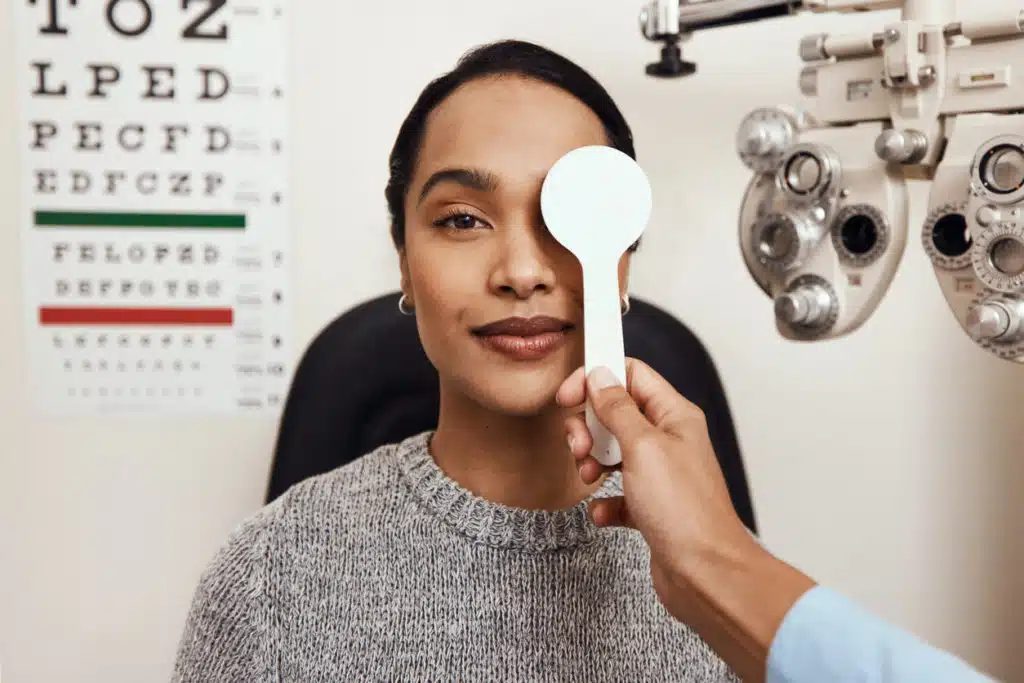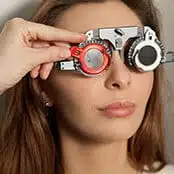
Did you know that your eyes are responsible for roughly 80 percent of the sensory impressions coordinated in your brain?
Given how much you rely on your sense of sight for many of the things you do every day, developing a vision problem can lead to significant quality-of-life issues and even make you prone to accidents and injuries.
It stands to reason that you need to be proactive about your eye health— and this includes visiting your ophthalmologist for routine eye exams. Read on to learn more about the importance of getting regular eye exams as well as how often you should have one.
Prompt Detection of Eye Problems
Through comprehensive, routine eye exams, your ophthalmologist can detect any signs indicative of a refractive error, determine what type you have (whether astigmatism, nearsightedness, farsightedness, or presbyopia), and devise a suitable treatment plan. Refractive errors are vision problems in which the shape of your eye prevents it from focusing light correctly onto your retina.
Regular eye exams can also help your ophthalmologist identify symptoms of eye diseases and disorders (e.g., cataracts, glaucoma, and macular degeneration) which, when not managed properly, can lead to vision loss. The results of your eye exam can guide your ophthalmologist in establishing a treatment strategy to help prevent or reduce your risk for potentially irreversible complications.
Through eye exams, your ophthalmologist may also be able to recognize signs of broader health problems, such as diabetes, hypertension, high cholesterol, and certain cancers. These chronic conditions can present signs that can be identified in the fine blood vessels in the back of your eye before they appear in other parts of your body.
During your eye exam, our ophthalmologist will use a series of tests to examine the different components of your vision. The following are some of the assessments your ophthalmologist will likely use:
- Color vision test- to identify signs of color deficiency
- Eye muscle test- to check for poor muscle coordination and weakness
- Glaucoma test – to assess the angle where your cornea meets your iris to detect glaucoma and its severity
- Refraction assessment- to determine whether you need corrective lenses
- Slit-lamp examination- to check the areas in and around your eyes for signs of injuries, diseases, and other problems
- Visual acuity test- to check how clearly you see from a specific distance
- Visual field exam – to evaluate how much you can see out of the corners of your eyes without moving
How Often You Should Go for Eye Exam
How often you need to visit your eye specialist for an exam depends on a number of factors, including your age, risk factors for eye diseases, and overall health.
If you don’t have any existing vision problem or symptoms thereof, or you have low risk for eye diseases, your eye doctor will likely recommend having routine exams based on your age:
- 20 to 39 years of age – every five years
- 40 to 54 years of age – every two to four years
- 55 to 64 years of age – every one to two years, or as ordered by your ophthalmologist.
You may need to get eye exams more often (usually once a year) if you are already wearing corrective lenses, have an existing eye disease, or have strong risk factors for it.
Comprehensive Eye Exams in Washington, MO
For comprehensive eye exams in the Washington area in Missouri, visit us here at Advanced Sight Center. Our board-certified ophthalmologists have established a reputation as among the trusted providers of first-rate eye care in the state. We offer comprehensive eye exams, which are crucial for carrying out sight-saving interventions and ultimately helping patients maintain healthy vision into their golden years.
To schedule an appointment for an eye exam or a consultation with one of our ophthalmologists, call our staff today at (314) 878-4228. You may also use our appointment request form, and our scheduler will promptly get back to you to confirm your visit.



